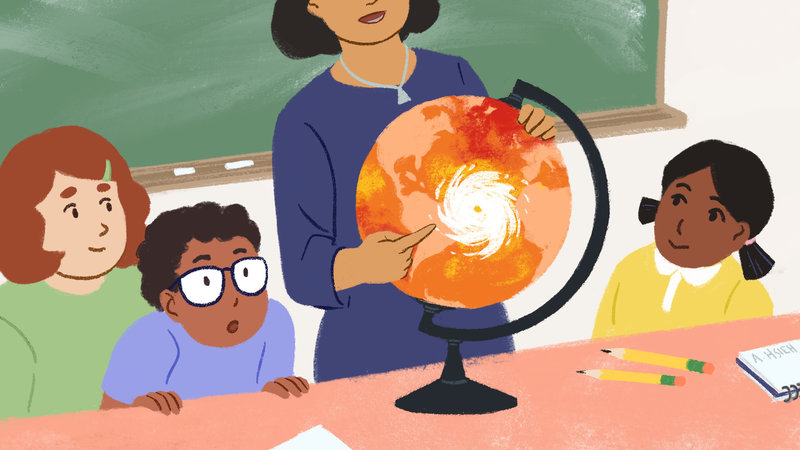Climate Change is Heating Up the Classrooms
A resolution passed by the National Council of English Teachers (NCTE) now allows English teachers to incorporate climate change issues and topics that relate to climate change into their English lessons.
Recently, a resolution was passed by the National Council of English Teachers (NCTE) that allows English teachers to incorporate climate change issues and topics into their English lessons.
“This is to empower the leaders and improvement of education toward science and implication of science,” said Ms. Karen Sher, an eighth grade teacher and Oxnard Union High School District (OUHSD) board member who was one of the people to propose the resolution to OUHSD.
“The purpose of this new resolution is to educate and inspire students for future generations, and to see the change for good that you wish to see for the planet and your children,” Sher said.
Sher referred to collaborative creativity, communication, and critical thinking — which she calls the “Three C’s.” Sher believes these traits are vital to the classroom setting and implementing them can benefit students all around the nation.
“My message to young people who want to have an impact: there are so many [things] kids can do, do not underestimate them,” Sher said.
Ms. Lauri Markson, English teacher at Cam High, said, “I would implement climate change into my lessons and it would, in fact, have a positive effect on the community. There is definitely a part where I would not necessarily teach all of the climate change because I’m not aware of climate change completely [and] I am not totally familiar with the subject.”
Markson plans on helping students interpret scientific works. “If [students] were to do papers on climate change, my job is to help them see so that they can decipher the material in an academic and discerning manner, so they can decide of what they read, of the form the scientifically credible sources, whether climate change is a reality or not,” said Markson.
Markson said, “Personally I don’t feel comfortable talking about politics in my class or sharing my political views, and teachers should not share their political views, and I don’t understand why climate change seems to be a political issue.”
Ms. Heidi Resnick, Cam High’s library science teacher, said, “NCTE is articulating the use of climate change into English curriculum. We can use this to construct good thoughts, gather usable, relevant evidence and good arguments. English is a very open-ended classroom, so the implementation can help with creativity.”
“We can use credible sources for us to understand, visually and audible, that the Earth irrefutably has had the highest temperatures in recent years,” said Resnik.

















































































![Senior Ditch Day... Relaxation or Truancy? [Video]](https://achsstinger.com/wp-content/uploads/2017/10/IMG_7119-900x599.jpg)
![Heavy Rain Hits Cam High [video]](https://achsstinger.com/wp-content/uploads/2017/02/maxresdefault-900x506.jpg)



